Material och enheter för energilagring
Forsknings- & innovationsområde 2
Energienheter tjänar flera syften: funktionskontroll av objekt i drift (såsom nät, drivsystem, elektrolys), energiomvandling och energilagring. Vi fokuserar på energienheter som inte släpper ut koldioxid under drift; därför omfattar centret inte värmeenheter som använder biobränslen.
Potentiella framtida energilagringsalternativ kommer att kartläggas utifrån deras effekt- och energiegenskaper. När det gäller effekten kommer varaktigheten för olika effektnivåer som en funktion av tiden att fastställas, så att dessa kan kartläggas mot behoven från Systemområdet. Att kunna kombinera lagringsenheter för att uppnå 'hybridenheter' som bättre matchar prestandakraven från Systemområdet är en stor möjlighet som kommer att undersökas.
Leds av: Professor Moyses Araujo, Linköpings universitet
Forskningsprojekt
Projektbeskrivningarna är endast tillgängliga på engelska.
-
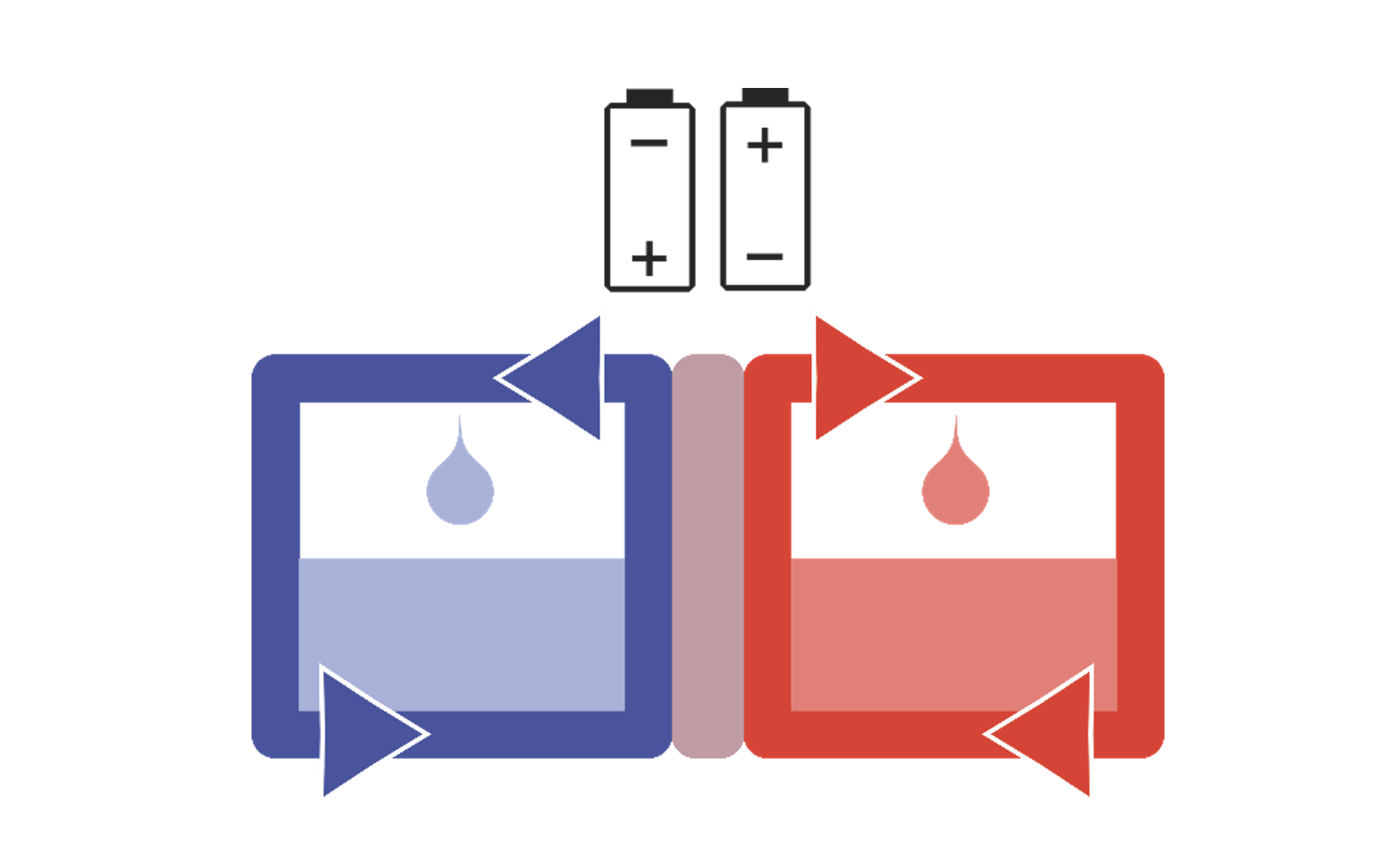 High-power vanadium redox flow batteries
High-power vanadium redox flow batteriesTo overcome the challenges of direct usage of renewable electricity in power grids, the distributed electricity production requires the similarly distributed electricity storage system. Here, large-scale battery energy storage systems (BESS) can be used for buffering loads at strategic network nodes to alleviate congestion in storage-as-transmission.
Read more -
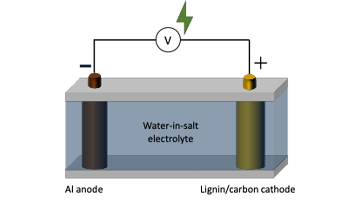 Hydrophobic cationic sieve enabling rechargeable aluminium-lignin batteries
Hydrophobic cationic sieve enabling rechargeable aluminium-lignin batteriesIn the quest for cleaner and sustainable energy, aluminium metal batteries are emerging as a promising alternative to the widely used lithium-ion batteries. Aluminium is abundant, affordable, and has the potential to store large amounts of energy. However, developing efficient aluminium batteries comes with challenges, such as instability when exposed to water-based solutions.
Read more -
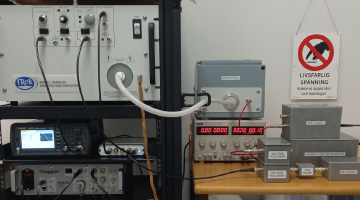 Novel Dielectric Diagnostics Method for Materials for Next Generation of High-Performance Capacitors
Novel Dielectric Diagnostics Method for Materials for Next Generation of High-Performance CapacitorsHigh-voltage capacitors play a critical role in ensuring stability and efficiency within modern electrical power systems. However, the materials used in these capacitors often encounter significant challenges under extreme conditions, including high electric fields and temperature fluctuations.
Read more -
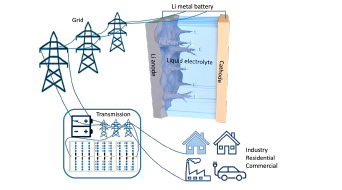 High temperature battery technology
High temperature battery technologyLi-ion batteries are currently the dominant energy storage technology from portable electronics to large-scale grid energy storage. However, the utilization of LIBs within grid units working at high temperature is hindered by the rapid decay of their electrochemical performance.
Read more -
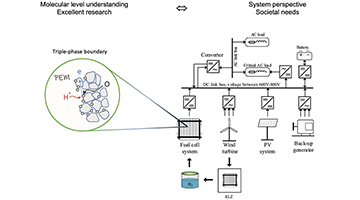 Towards a more efficient use of PEM fuel cells and electrolysers
Towards a more efficient use of PEM fuel cells and electrolysersPEM (proton exchange membrane) devices convert chemical energy in electricity (fuel cells) and vice versa (electrolysers), using hydrogen as an energy vector. PEM devices are currently extremely relevant for the transition into a sustainable energy system with decarbonization as a central aim.
Read more -
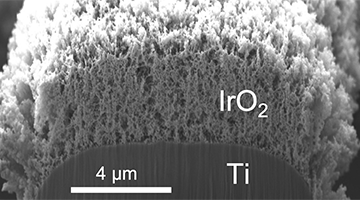 New Catalysts for Electrolysis/Fuel Cell Purposes
New Catalysts for Electrolysis/Fuel Cell PurposesProton exchange membrane water electrolysis (PEMWE), the only CO2 free hydrogen production source that is adapted to renewable energy sources, is dependent on the rare noble metals Ir and Pt. We aim to develop porous catalyst layers to decrease the noble metal content while maintaining or increasing critical performance parameters.
Read more -
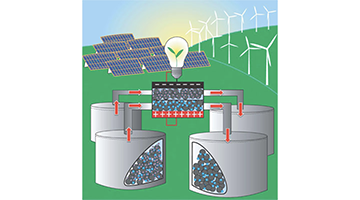 Design of the next generation of slurry flow cells for electrical energy storage
Design of the next generation of slurry flow cells for electrical energy storageWe design new organic slurries for the charge storage in redox flow batteries. Those are made of conducting polymer or carbon conductor particles and other redox organic additives. We adapt the architecture of the redox flow cell to be appropriate to slurries and avoid obstruction phenomenon.
Read more -
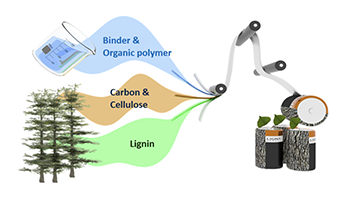 New bio-gel electrolytes for Zn-lignin batteries
New bio-gel electrolytes for Zn-lignin batteriesWe propose a Zinc-Lignin battery as a new, low-cost energy storage solution using two of the most affordable electroactive materials: zinc and the biopolymer lignin, which makes up 30% of plants.
Read more -
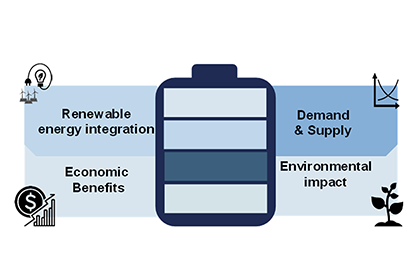 Performance evaluation of battery-based energy storages for various duties
Performance evaluation of battery-based energy storages for various dutiesIn this project various storages, with a basis in Li-ion technologies are investigated in terms of their power and energy ability, linked to their environmental impact.
Read more -
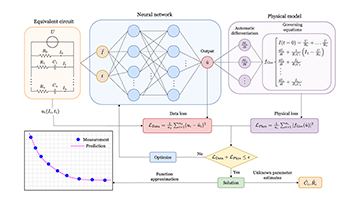 AI methods for development and condition monitoring of energy storage devices
AI methods for development and condition monitoring of energy storage devicesThis project aims to develop a physics-based AI framework for the characterization, performance evaluation, and lifetime prediction of energy storage devices, including high-voltage power capacitors, batteries, and supercapacitors.
Read more